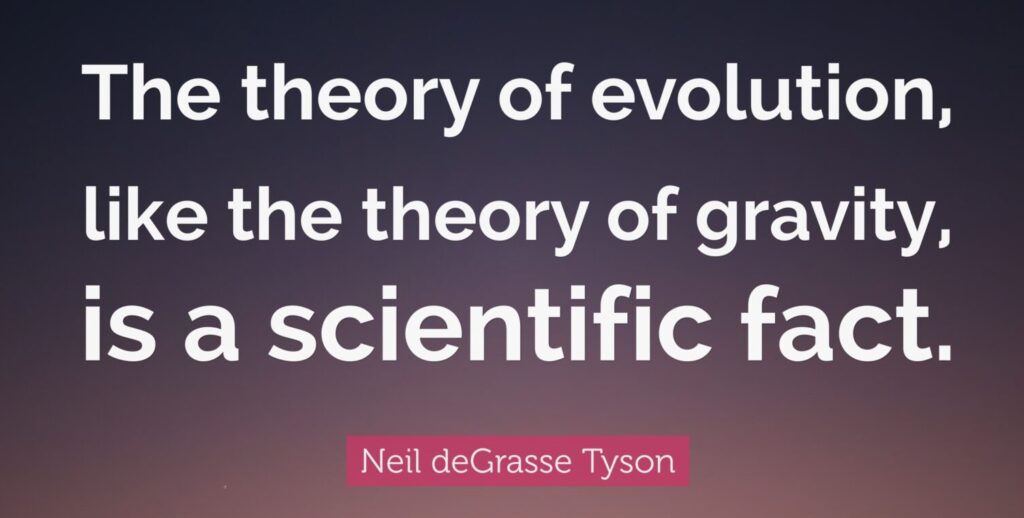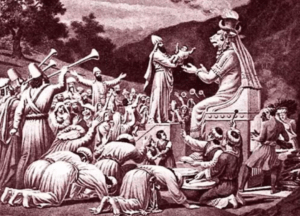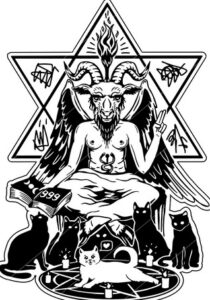“Who am I?” is one of life’s most important questions. Where will we find the answer? From our parents, our peers, teachers, books, nature, God, the devil, or ourselves?
If we know who we are, we will be more likely to act in agreement with our true identity. If we believe a lie about who we are, we will probably fulfill the false image.
The devil made it his mission to defile what God created and loves. He could not directly curse God or his creatures; so, instead he tricked Adam and Eve to bring God’s judgment upon themselves through outright disobedience. When Adam and Eve ate the forbidden fruit, they chose to receive information about their identity from the wrong source. Satan only tells lies, being the Father of Lies, according to Jesus. Ever since, we have been bombarded with lie after lie after lie, each one pushing us farther from God and closer to destruction.
When we derive our identity from the master deceiver, it will always be warped and leading away from God. God asked Adam where he got the information that he was naked and needed to hide from God.
During the cool part of the day, the LORD God was walking in the garden. The man and the woman heard him, and they hid among the trees in the garden. 9 The LORD God called to the man and said, "Where are you?" 10 The man said, "I heard you walking in the garden, and I was afraid. I was naked, so I hid." 11 God said to the man, "Who told you that you were naked? Did you eat fruit from that special tree? I told you not to eat from that tree!" Genesis 3:8-11 (ETRV)
It seems obvious that, if a person believes in God, he or she should seek the answer to the identity question from the one who created us.
God surely knows exactly who we are. Not only that, for those who have put their faith in Jesus Christ, our identity has been recreated through the new birth, making us spiritual children of our heavenly Father.
Once again, we turn to Genesis for insight.
Then God said, “Let us make man in our image, after our likeness. And let them have dominion over the fish of the sea and over the birds of the heavens and over the livestock and over all the earth and over every creeping thing that creeps on the earth.” 27 So God created man in his own image, in the image of God he created him; male and female he created them. Genesis 1:26-27 (ESV)
Questions from the Text
There are several things in the above passage that should make us ponder.
- Who are the “us” mentioned in verse 26? We already noticed that in the opening two verses of Genesis, God and his Spirit are both mentioned. We also saw that the eternal logos or Word, who is later revealed to be Jesus (John 1:14), was also present and doing the creating. Therefore, right here in the opening chapter of Genesis, we have the beginning of the biblical doctrine of the Trinity, the mysterious revelation that, even though God is one, he is an “us,” three persons comprising one God.
- What does it mean to be created or made in God’s image and likeness? We will find out later in Exodus that God prohibits making an idol or image to represent him. The only genuine image of God for us humans is the one presented by the eternal Logos, who became a man, Jesus the Messiah. (Hebrews 1:3) Jesus is the exact representation of the Father. We learn what the Father is like by observing and listening to his Son. But, beyond that, what does it mean that people are created in God’s image? Certainly God shares with us some of his qualities or communicable attributes. Human beings are intelligent, creative, responsible, emotional, and capable of love, truthfulness, and faithfulness, to name a few.
- What does it mean for us to have dominion over the rest of creation? The Hebrew word means to have dominion, rule, subdue, or prevail. We know from later verses in the Bible that God gave us the animals for food after the great flood. (Genesis 9:3) We also see that a godly person cares for his animals. (Proverbs 12:10) Putting all of this together, we conclude that mankind has been given dominion over the rest of creation, and he should use that dominion to provide for himself food and shelter, while also being a good steward of and kind toward the rest of creation.
- How does our sexuality reflect God’s image? In his wisdom, God divided mankind into male and female. We understand from the totality of the Bible that God is a spirit and not a sexual being; however, masculinity is ascribed to God the Father, Son, and Holy Spirit. Femininity is ascribed to the church. Males and females have physiological and emotional differences, even though there is a wide variation among individuals. Marriage, the joining of male to female both physically and emotionally, and, perhaps, spiritually, provides a means for God’s image to be more fully revealed.
Some Things We Learn about God
From our opening passage, we also learn some things about God. We must ask ourselves why God chose to create the earth, heavens, and living beings.
- Was it because he was lonely? The One God has existed eternally as a loving unified “trinity” of persons, the Father, Son, and Holy Spirit. Loneliness could not possibly be part of that equation. Ascribing loneliness to God insinuates that he is less than complete in himself, which is not true. Why then did he create us?
- In order to glorify himself by sharing his life and joy with others. Everything God does brings glory to himself because he is glorious and everything he does reflects that glory.
- By creating the heavens and earth, both the visible and invisible parts of it, he demonstrated his amazing genius, goodness, and power for others to see. The natural response of the creature should be to recognize God’s hand in the creation and worship the Creator.
- By creating people, God glorified himself through amazing beings who can think, choose, love, obey, worship, or the opposite of these things.
- By creating us and placing his image in us, God set the stage for sharing his very life and glory with his creation.
- We will learn later that it was his intent to show kindness to his people for all eternity. (Ephesians 2:7)
So What?
What then does it mean to us that God chose to create us in his image and likeness? Our first response should be one of humble wonder. King David illustrated this attitude when he penned Psalm 8.
When I consider Your heavens, the work of Your fingers, The moon and the stars, which You have ordained; 4 What is man that You take thought of him, And the son of man that You care for him? 5 Yet You have made him a little lower than God, And You crown him with glory and majesty! 6 You make him to rule over the works of Your hands; You have put all things under his feet, 7 All sheep and oxen, And also the beasts of the field, 8 The birds of the heavens and the fish of the sea, Whatever passes through the paths of the seas. 9 O LORD, our Lord, How majestic is Your name in all the earth! Psalm 8:3-9 (NASB)
David responded by worshiping and praising God. By doing this we can bring even more glory to God by making the choice to freely worship our Creator. This should be the default attitude in people. When we find something else, such as complaining, bitterness, the refusal to acknowledge God, etc., we know that sin is at work in a vain effort to deprive God of his glory and us of life and joy.
Humans Reflect the Triune Image of God
then the LORD God formed the man of dust from the ground and breathed into his nostrils the breath of life, and the man became a living creature (literally: soul). Genesis 2:7 (ESV)
God created Adam with a spirit, soul, and body. (If this seems like a strange concept to you, Paul confirmed man’s three-part composition in 1 Thessalonians 5:23.) God breathed his Spirit (ruach – wind, breath, spirit) into the body he formed out of the dust. This combination of spirit and body produced a living soul, consisting of mind, will, and emotions – our personality.
The spirit is the deepest part of a person, where we are able to connect to God after we are born again by the Spirit. When Adam and Eve chose to rebel against God in the garden, their sin introduced death into our lives, which affected every part of us. Spiritually it broke the life-giving communion Adam and Eve enjoyed at the beginning. Sin produced guilt, fear, and a desire to hide from God in their souls. Their bodies began to die, too. Every person who is born into this world since then arrives in the condition being “dead” in our sins, even though for a while we enjoy physical life. (Ephesians 2:1-2) In this condition we are by nature God’s enemies, with hardened hearts that are spiritually blind and deaf. Only God’s gracious intervention through the gospel and the inner working of the Holy Spirit can rescue us. That is why Jesus came. We learn about God’s incredible mercy and kindness through him.
Yes, the Word was full of grace and truth, and from him we all received one blessing after another. 17 That is, the law was given to us through Moses,♦ but grace and truth came through Jesus Christ. 18 No one has ever seen God. The only Son is the one who has shown us what God is like. He is himself God and is very close to the Father. John 1:16-18 (ETRV)
When a person comes to believe in Christ, the Holy Spirit causes the spirit to be “born again” or made anew in Christ’s image. (John 3:3-8) The Bible says that God’s Spirit and our spirit become one. (1 Cor. 6:17) God’s life and image is planted as a seed in the new believer’s being. (James 1:21) Like leaven in a lump of dough, that seed gradually transforms the person from the inside out. (Matthew 13:33)
For a more detailed explanation of spirit, soul, and body, you can click on the links in this sentence.
The newly recreated spirit is the seat of intuition, communion with God, and conscience. Because we have a spirit, humans are uniquely able to interface with both the spiritual and material worlds. Think about how amazing this is! What a gift God has given to us!
It should not surprise us that God would fashion us with three parts to our makeup. After all, he exists as three persons in one.
Just as it is often impossible to distinguish completely between the operation of the three persons of the Trinity, it is also extremely difficult to say where the spirit stops and the soul begins, or where the soul stops and body begins. Sicknesses are often labeled psycho-somatic because a link has been observed between the soul (Greek: psyche) and body (Greek: soma). Similarly, it is often difficult to distinguish between physical ailments and those brought on by an evil spirit. When Jesus ministered to sick people, he recognized both sources of illness and dealt with each in a different way. Only the Spirit of God and the Word of God have the ability to completely discern what is what. (Hebrews 4:12)
Having a spirit created in God’s image gives us a definite advantage over the animals. By being able to commune with God, we can gain his wisdom and insight into life situations. In addition, we have the promise of eternal life and sharing God’s glorious rule over all things.
Sin and the Image of God
Because of sin, people in general no longer reflect God in the same way as did Adam and Eve. All people still carry God’s image as a result of being created, but in many cases it has been so marred that human beings reflect the opposite of what God is like. Some people make the mistake of thinking that all people are God’s children, confusing the created image of God with the implanted life and person of God, which is given at the new birth.
Although all humans bear the image of God to some degree, only those people who have been born again are truly God’s children. This is the identity God wants us to have.
This means that it is not the children of the flesh who are the children of God, but the children of the promise are counted as offspring. Romans 9:8 (ESV)
The image of God is restored through the new birth and will be fully revealed at the resurrection of the just, at which time believers will be completely transformed into God’s image.
Beloved, we are God’s children now, and what we will be has not yet appeared; but we know that when he appears we shall be like him, because we shall see him as he is. 1 John 3:2 (ESV) Behold! I tell you a mystery. We shall not all sleep, but we shall all be changed, 52 in a moment, in the twinkling of an eye, at the last trumpet. For the trumpet will sound, and the dead will be raised imperishable, and we shall be changed. 53 For this perishable body must put on the imperishable, and this mortal body must put on immortality. 54 When the perishable puts on the imperishable, and the mortal puts on immortality, then shall come to pass the saying that is written: “Death is swallowed up in victory.” 55 “O death, where is your victory? O death, where is your sting?” 56 The sting of death is sin, and the power of sin is the law. 57 But thanks be to God, who gives us the victory through our Lord Jesus Christ. 1 Corinthians 15:51-57 (ESV)
Conclusion
Our identity as beings created in God’s image was marred by sin. Because of the broken condition in which we are born into the world, most people have a false idea of who they are and who God is. We sin when we act in agreement with our sin marred identity. Jesus came to restore us back to the image of God through the new birth. As we learn to live out of our new identity, our motivation and goal should be to glorify God and worship, obey, and serve him from the heart.
Those of us who have experienced the new birth are commissioned to share this blessing by telling how Jesus came to redeem a people back to God. We do this in the hope that the gospel message will prompt people to put their faith and allegiance in Christ and be restored as children of God who bear the full image of God, our true identity.





 God’s benevolence and wisdom. God would not do that, but the devil seeks to convince us that this is the case. Pagan religions have long promoted transgenderism. We know that the demons behind these false gods report to the devil.
God’s benevolence and wisdom. God would not do that, but the devil seeks to convince us that this is the case. Pagan religions have long promoted transgenderism. We know that the demons behind these false gods report to the devil.